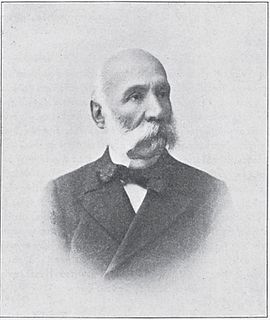
Parliamentary elections were held in Greece on 11 December [O.S. 28 November] 1910, following elections in August. The Liberal Party won 307 of the 362 seats. Eleftherios Venizelos remained Prime Minister, having assumed office on 18 October.

Parliamentary elections were held in Greece on 7 November 1926. The Liberal Union emerged as the largest faction in Parliament with 108 of the 286 seats. The composition of the new parliament meant that the parties and factions had to work together to form a viable parliamentary government. On Kafandaris' initiative negotiations began among the main parties, leading to the swearing-in on the 4 December of a government under the premiership of Alexandros Zaimis who was not a member of parliament. The coalition consisted of the Liberal Union, the Democratic Union, the People's Party and the Freethinkers' Party. This government came to be known as the "Ecumenical government".

Parliamentary elections were held in Greece on 26 January 1936. The Liberal Party emerged as the largest party in Parliament, winning 126 of the 300 seats.

Parliamentary elections were held in Greece on 5 March 1950. The People's Party emerged as the largest party in Parliament, winning 62 of the 250 seats.
Parliamentary elections were held in Greece on 6 October 1856. Supporters of Dimitrios Voulgaris won a majority of the 138 seats. However, Voulgaris remained Prime Minister only until 25 November the following year, when he was replaced by Athanasios Miaoulis.
Parliamentary elections were held in Greece on 16 January 1861. Supporters of the Athanasios Miaoulis-led coalition won a majority of the 138 seats. Miaoulis remained Prime Minister.
Parliamentary elections were held in Greece on 14 May 1865. Supporters of Alexandros Koumoundouros emerged as the largest bloc in Parliament, holding 95 of the 170 seats. Koumoundouros remained Prime Minister until 1 November, when he was replaced by Epameinondas Deligiorgis.
Parliamentary elections were held in Greece on 18 July 1875. Supporters of Alexandros Koumoundouros emerged as the largest bloc in Parliament, with 80 of the 190 seats. Koumoundouros became Prime Minister on 27 October.

Parliamentary elections were held in Greece on 23 September 1879. Supporters of Alexandros Koumoundouros and Theodoros Deligiannis emerged as the largest bloc in Parliament, with 100 of the 207 seats. Koumoundouros remained Prime Minister until 22 March the following year.

Parliamentary elections were held in Greece on 20 December 1881. Supporters of Charilaos Trikoupis emerged as the largest bloc in Parliament, with 125 of the 245 seats. Trikoupis became Prime Minister on 15 March 1883.

Parliamentary elections were held in Greece on 7 April 1885. Supporters of Theodoros Deligiannis emerged as the largest bloc in Parliament, with 170 of the 245 seats. Deligiannis became Prime Minister on 1 May.

Parliamentary elections were held in Greece on 4 January 1887. Supporters of Charilaos Trikoupis emerged as the largest bloc in Parliament, with 90 of the 150 seats. Following the election Trikoupis remained Prime Minister, having assumed office on 21 May 1886.

Parliamentary elections were held in Greece on 14 October 1890. Supporters of Theodoros Deligiannis emerged as the largest bloc in Parliament, with 100 of the 150 seats. Deligiannis became Prime Minister for the second time on 5 November.

Parliamentary elections were held in Greece on 3 May 1892. Supporters of Charilaos Trikoupis emerged as the largest bloc in Parliament, with 160 of the 207 seats. Trikoupis became Prime Minister for the sixth time on 22 June.

Parliamentary elections were held in Greece on 16 April 1895. Supporters of Theodoros Deligiannis emerged as the largest bloc in Parliament, with 150 of the 207 seats. Deligiannis became Prime Minister for the third time the 11 June.

Parliamentary elections were held in Greece on 7 February 1899. Although Charilaos Trikoupis died in 1896, his supporters emerged as the largest bloc in Parliament, with 110 of the 235 seats, Georgios Theotokis, his successor as a leader of the New Party became Prime Minister after the election.

Parliamentary elections were held in Greece on 20 February 1905. Supporters of Theodoros Deligiannis emerged as the largest bloc in Parliament, with 144 of the 235 seats. Deligiannis remained Prime Minister after the election, but died on 13 June and was succeeded by Dimitrios Rallis.

Parliamentary elections were held in Greece on 26 March 1906. Supporters of Georgios Theotokis emerged as the largest bloc in Parliament, with between 112 and 114 of the 177 seats. Theotokis remained Prime Minister after the election, having originally assumed office on 21 December 1905.

Parliamentary elections were held in Greece on 21 August [O.S. 8 August] 1910. The United Parties won 211 of the 362 seats. Eleftherios Venizelos became Prime Minister on 18 October, and early elections were held in November.
Parliamentary elections were held in Norway in 1859. As political parties were not officially established until 1884, all those elected were independents. The number of seats in the Storting was increased from 111 to 117. Voter turnout was 47.7%, although only 4.9% of the country's population was eligible to vote.








